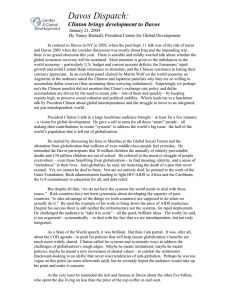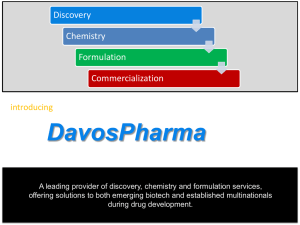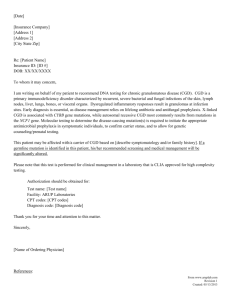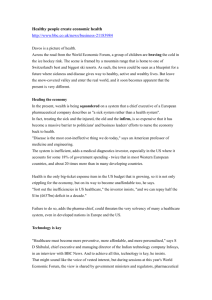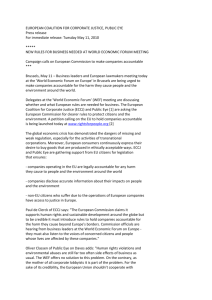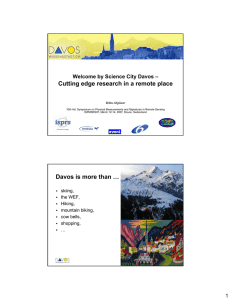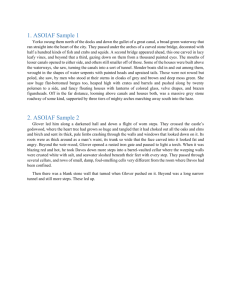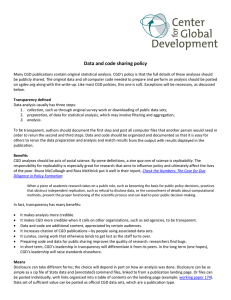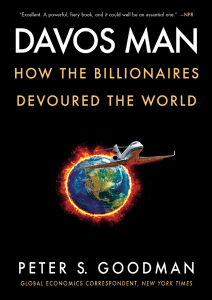Davos Dispatch: The Davos Development Agenda: Migration, Political Analysis, Trade and Health
advertisement
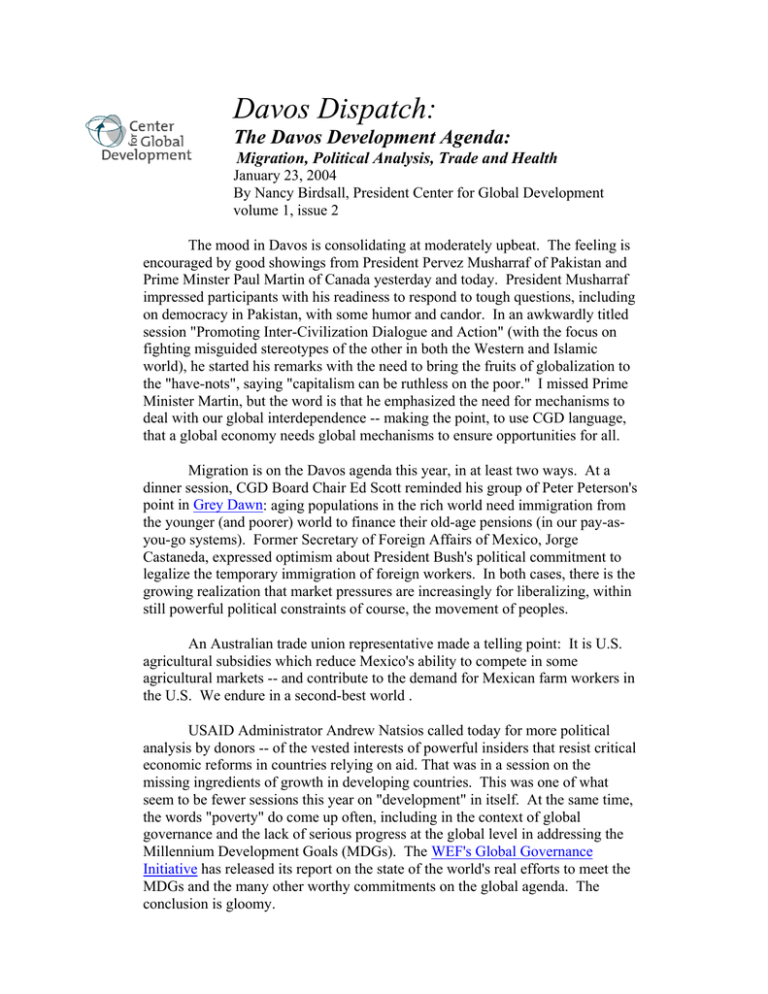
Davos Dispatch: The Davos Development Agenda: Migration, Political Analysis, Trade and Health January 23, 2004 By Nancy Birdsall, President Center for Global Development volume 1, issue 2 The mood in Davos is consolidating at moderately upbeat. The feeling is encouraged by good showings from President Pervez Musharraf of Pakistan and Prime Minster Paul Martin of Canada yesterday and today. President Musharraf impressed participants with his readiness to respond to tough questions, including on democracy in Pakistan, with some humor and candor. In an awkwardly titled session "Promoting Inter-Civilization Dialogue and Action" (with the focus on fighting misguided stereotypes of the other in both the Western and Islamic world), he started his remarks with the need to bring the fruits of globalization to the "have-nots", saying "capitalism can be ruthless on the poor." I missed Prime Minister Martin, but the word is that he emphasized the need for mechanisms to deal with our global interdependence -- making the point, to use CGD language, that a global economy needs global mechanisms to ensure opportunities for all. Migration is on the Davos agenda this year, in at least two ways. At a dinner session, CGD Board Chair Ed Scott reminded his group of Peter Peterson's point in Grey Dawn: aging populations in the rich world need immigration from the younger (and poorer) world to finance their old-age pensions (in our pay-asyou-go systems). Former Secretary of Foreign Affairs of Mexico, Jorge Castaneda, expressed optimism about President Bush's political commitment to legalize the temporary immigration of foreign workers. In both cases, there is the growing realization that market pressures are increasingly for liberalizing, within still powerful political constraints of course, the movement of peoples. An Australian trade union representative made a telling point: It is U.S. agricultural subsidies which reduce Mexico's ability to compete in some agricultural markets -- and contribute to the demand for Mexican farm workers in the U.S. We endure in a second-best world . USAID Administrator Andrew Natsios called today for more political analysis by donors -- of the vested interests of powerful insiders that resist critical economic reforms in countries relying on aid. That was in a session on the missing ingredients of growth in developing countries. This was one of what seem to be fewer sessions this year on "development" in itself. At the same time, the words "poverty" do come up often, including in the context of global governance and the lack of serious progress at the global level in addressing the Millennium Development Goals (MDGs). The WEF's Global Governance Initiative has released its report on the state of the world's real efforts to meet the MDGs and the many other worthy commitments on the global agenda. The conclusion is gloomy. WTO Director-General Supachai Panitchpakdi threw out a challenge yesterday: that the more than 90 bilateral and regional trade agreements now being negotiated all be put on hold for 12 months. Then the negotiators' time, the meetings, the energy could all be redirected to reviving the multilateral Doha development trade round. That would surely be better for the poorer and weaker economies that benefit most from a multilateral umbrella. Global health is also on the agenda here, with an impressive 15 percent of all sessions dedicated to health and related issues (according to WEF staff). Klaus Schwab hosted a luncheon today with about 20 participants, from the international world of health and from business, to explore the possible creation of a World Health Council. The council would bring together multiple stakeholders, including the corporate sector, to promote health. Maurice Strong, now an adviser to Kofi Annan, is a strong proponent. Such a group would certainly create a constituency for the work of CGD’s Health Policy Research Network. Mine is a tiny window on the wide world of Davos' talk. But then is, perforce, the fate of virtually all the participants here. For all the apparent contrast between the people and ideas at the World Social Forum and here, it would not surprise me that there is a large commonality in their agendas, of objectives if not of means.
